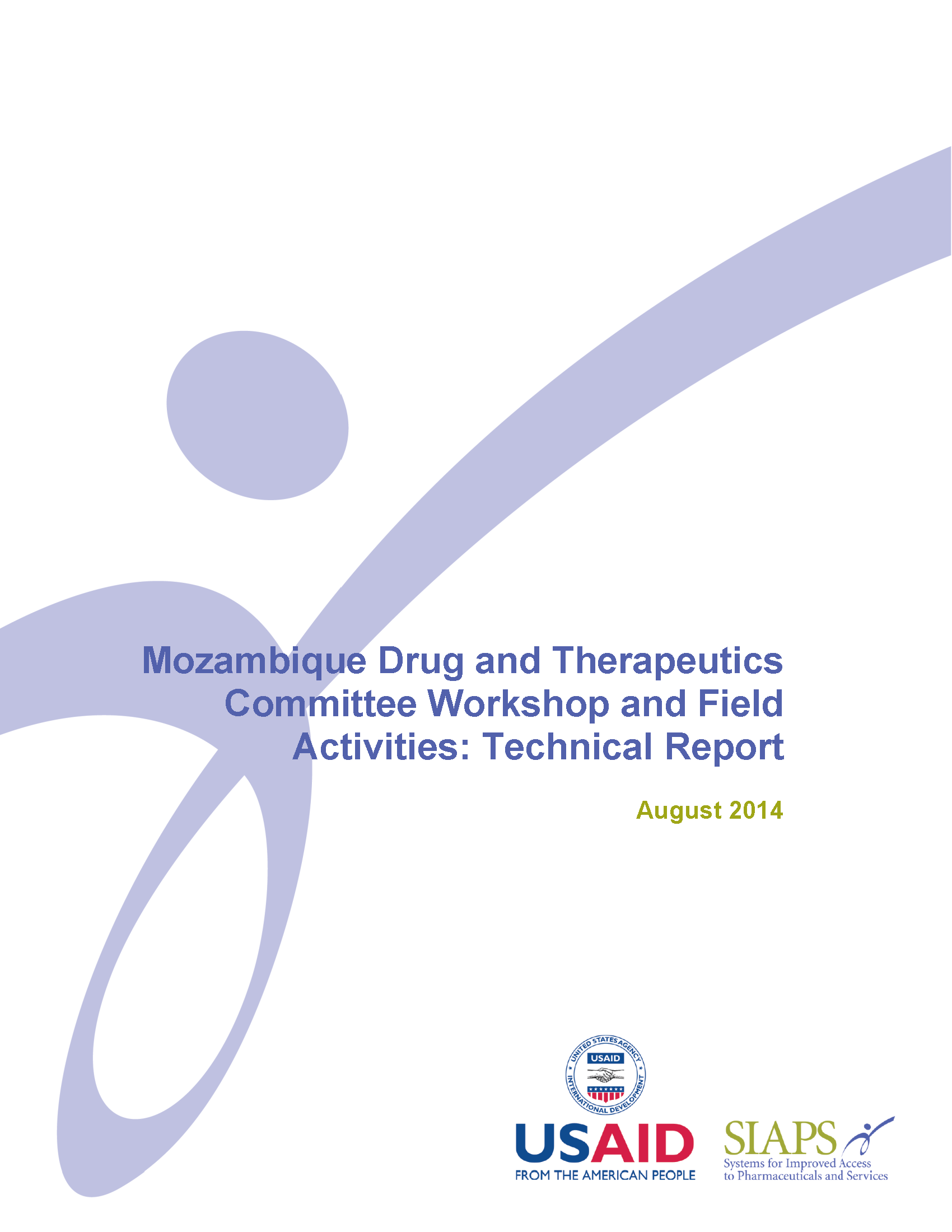
The irrational use of medicines is a pervasive problem that threatens healthcare systems and quality of patient care in countries worldwide. The World Health Organization (WHO) estimates that 50% of patients receive unnecessary medicines and half of patients take their medicines incorrectly.
Irrational use behaviors include polypharmacy (the use of too many medicines per patient); the use of incorrect medicine(s) for a particular indication; the use of medicines with uncertain or unproven efficacy; inappropriate self-medication, particularly with prescription-only medicines; and taking medicines in incorrect dosages or for an improper duration.
To counter the problems of irrational use, Systems for Improved Access to Pharmaceuticals and Services (SIAPS) Program and Ministério da Saúde (MISAU) (Ministry of Health) are working together in Mozambique to improve medicine management and use. SIAPS is seeking to create sustainable Drug and Therapeutics Committees (DTCs) to monitor and identify medicine use problems and to implement interventions to improve medicine use at the local health-facility level. SIAPS will also support the revision of the National Essential Medicines List (NEML) and development of new standard treatment guidelines (STGs) to complement those that are currently available.
This technical report provides information on the DTC workshop conducted on August 4-5, 2014, and on field visits to two hospitals in the Maputo area: Maputo Central Hospital and Matola Provincial Hospital. These field visits were designed to meet with hospital officials and DTCs, as well as to develop specific DTC activities to address medicine use problems.


